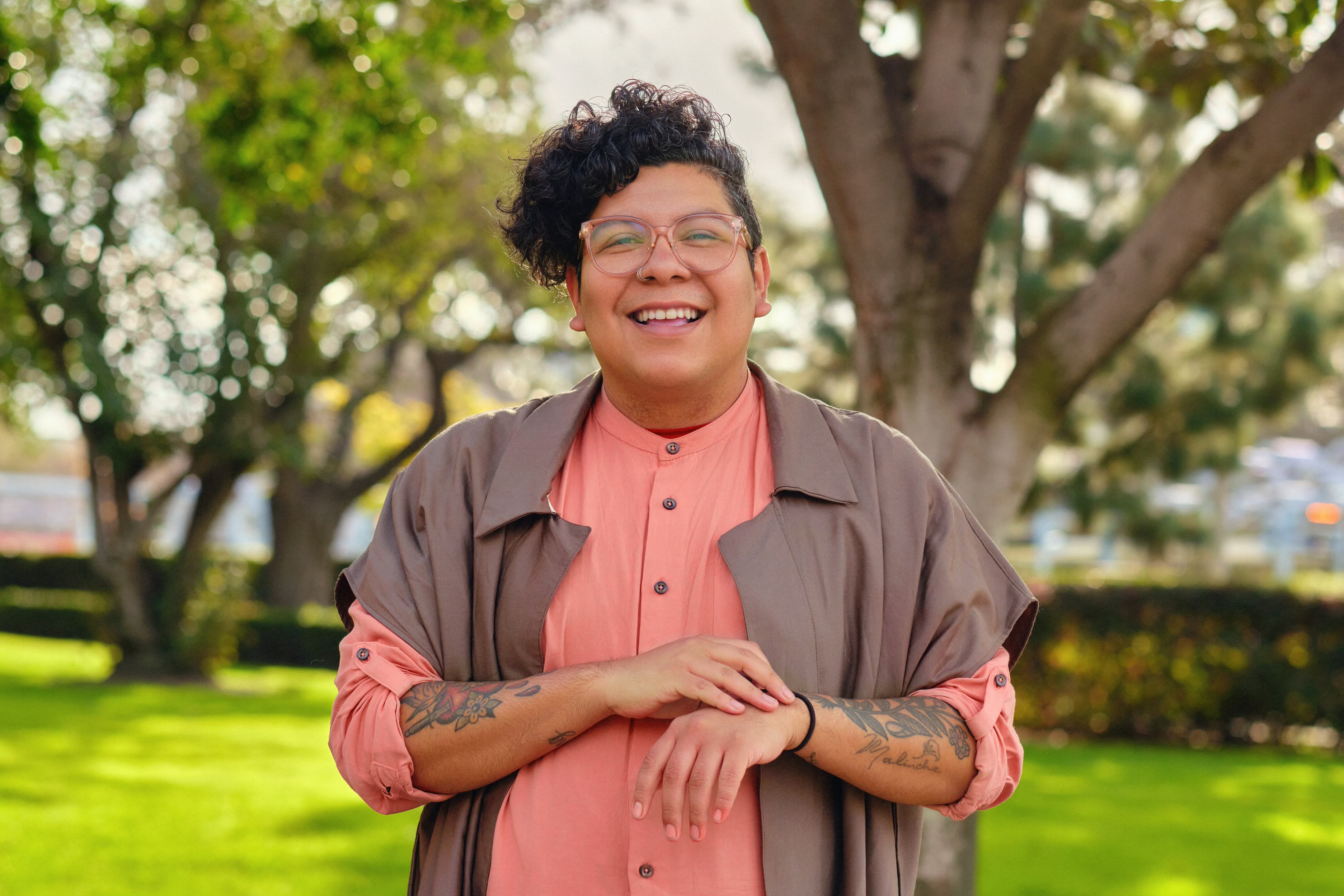Who are cities designed for? By whom are they designed?
These are questions that have driven Jose Richard Aviles throughout their professional journey. Hailing from South Central Los Angeles, Jose Richard has consistently integrated a community-centric lens into their work in urban planning. In roles at various organizations, and currently at the Othering and Belonging Institute at the University of California, Berkeley, they offer technical support to transit agencies, advocating for a more equitable approach that involves genuine engagement with end-users.
As a native Angeleno, Jose Richard identifies a fundamental problem in modern urban planning: “We don’t sufficiently center the user,” they observe.
The perspective of a native Angeleno
"Many planners working in Los Angeles aren’t originally from here, and as such, they lack a deep-rooted stake in the city," Jose Richard says. "Surprisingly, numerous transportation planners don’t even use public transit themselves. How can one plan for a system they are not part of?"
Jose Richard’s life has been significantly influenced by public transit. From a young age, they faced gender and sexual orientation-based harassment during bus rides to school. These experiences ignited a passion for organizing and community engagement. "I started riding public transit at 12,” they recall. “It was a difficult period but also illuminating; it led me to work with the Bus Riders Union, where I first encountered the concept of 'transit racism.'"
The intersection of social work and urban planning
Jose Richard initially pursued a career in social work but soon realized that their true calling lay in urban planning—a field they argue isn’t fundamentally different from therapy.
"Our role should be to serve the community, not just to take directives from elected officials," they argue. "Like therapists, we should focus on people’s well-being, not just their problems. We must unpack societal issues and empower individuals to take control of their lives, much like in therapy."
Therapeutic approaches in urban planning
Drawing from their background in therapeutic practice, Jose Richard introduces three critical frameworks into their planning work.
Strengths perspective: Planners should focus on what a community does well rather than its shortcomings.
Countertransference: Planners must be aware of and address their biases, much like a therapist would in a client relationship.
Celebrating the 'no': When community members disagree, planners should consider it an opportunity to understand a different viewpoint instead of taking offence.
The way forward: Local connectivity and mobility.
In their role at the Othering and Belonging Institute, Jose Richard applies these principles to various aspects of planning, from data collection to workshop facilitation. They aim to shift the focus from car-centric designs to local mobility options that are inclusive and realistic.
“We should be investing more in pedestrian-friendly plans and prioritizing local over regional mobility,” they insist.
During one community engagement exercise, they encouraged people to keep transit diaries. "It was surprising for some when I suggested, 'Why not go to the bus stop?' This idea seemed revolutionary to many, but to me, it was just common sense," they recall.
Final thoughts
As urban planning practitioners, we are responsible for listening and learning from those most impacted by our decisions. Jose Richard’s approach underscores the importance of centering community needs, illustrating that we all have a role in creating equitable and user-focused urban environments.
-------------------------------------------------------------------------------------------------------
Get involved
Connect with Jose Richard Aviles
Are you intrigued by Jose Richard's urban planning and community engagement approach? Do you want to learn how to center the user in your work? Take the opportunity to connect directly with Jose Richard Aviles to dive deeper into their groundbreaking methods. Reach out to them via LinkedIn or through the Othering and Belonging Institute.
Partner with Steer for community-centric transportation solutions
At Steer, we're committed to aligning our transportation planning and consulting services with equitable and community-centric engagement principles. We recognize that the most effective and sustainable solutions come from deep-rooted partnerships with local communities. We're open to collaborating with municipalities, nonprofits, and other stakeholders who are as passionate as we are about creating user-focused, resident-centric transportation systems.
If you're interested in partnering with us to make an impactful difference, let’s discuss how we can work together to ensure that community needs are not just included but are at the heart of the planning and implementation process. Contact us today.
